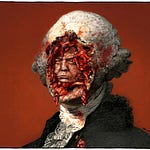Few individuals did more to shape modern cinema than the actor, director and producer Charlie Chaplin. One of the greatest of all comic mimes he also pioneered cinematic techniques and story-telling. His films, with his iconic role as the beleaguered little tramp with baggy trousers, moustache, cane and bowler hat, were not only comic masterpieces, but unflinching looks at poverty, unemployment, capitalist exploitation, the callousness of authority, the search for meaning and dignity in a hostile world and the yearning for love and acceptance. He argued that drama should be derived from the close observation of life. He refused to follow the conventions, including the penchant for exaggerated melodrama, perfecting his work with hundreds of takes, subtle acting and nuanced facial expressions. He created full length feature films with highly crafted plots and characters. He strove, he said, “to put across the philosophical doubt I feel about things and people.” His films, he said, were a metaphysical excercise, an attempt to unmask as “absurd, antiquated, and unfair to humanity” the idea that there exists “a cosmos where humans were held responsible for their actions or the results of their actions.” The French filmmaker Jean Luc Goddard wrote of Chaplin that “while remaining marginal to the rest of cinema” he “ended up filling this margin with more things (what other word can one use: ideas, gags, intelligence, honor, beauty, movement?) than all directors together have put in a whole book.” Chaplin, the most famous silent film star of his era, swiftly earned the enmity of J. Edgar Hoover and the FBI who saw in his poignant portrayals of the marginalized and forgotten political subversion. The FBI, which began investigating Chaplin in 1922 and would amass an FBI file of 1,900 pages on him for his alleged “communist sympathies,” finally drove him into exile. In 1952, while Chaplin was in London for the premier of his film Limelight, the U.S. Attorney General revoked Chaplin’s re-entry permit. This ended his Hollywood career. He would spend the rest of his life in Switzerland. Joining me to discuss the importance and legacy of Charlie Chaplin is the film director, screenwriter and producer Martin Brest. Martin has directed numerous films some of which include Midnight Run with Robert De Niro, for which he won a Golden Globe Nomination for Best Motion Picture, Scent of a Woman with Al Pacino, for which he won the Golden Globe for Best Motion Picture, with Pacino winning for Best Actor along with the blockbuster Beverly Hills Cop, nominated for the Golden Globe Award for Best Motion Picture and the Academy Award for Best Original Screenplay.
Playback speed
×
Share post
Share post at current time
Share from 0:00
0:00
/
0:00
Transcript
Part Two: New Year's Day Special with Golden Globe winning Film Director Martin Brest, who directed Scent of a Woman, Midnight Run and other films, on the Genius of Charlie Chaplin.
Dec 31, 2023













Share this post